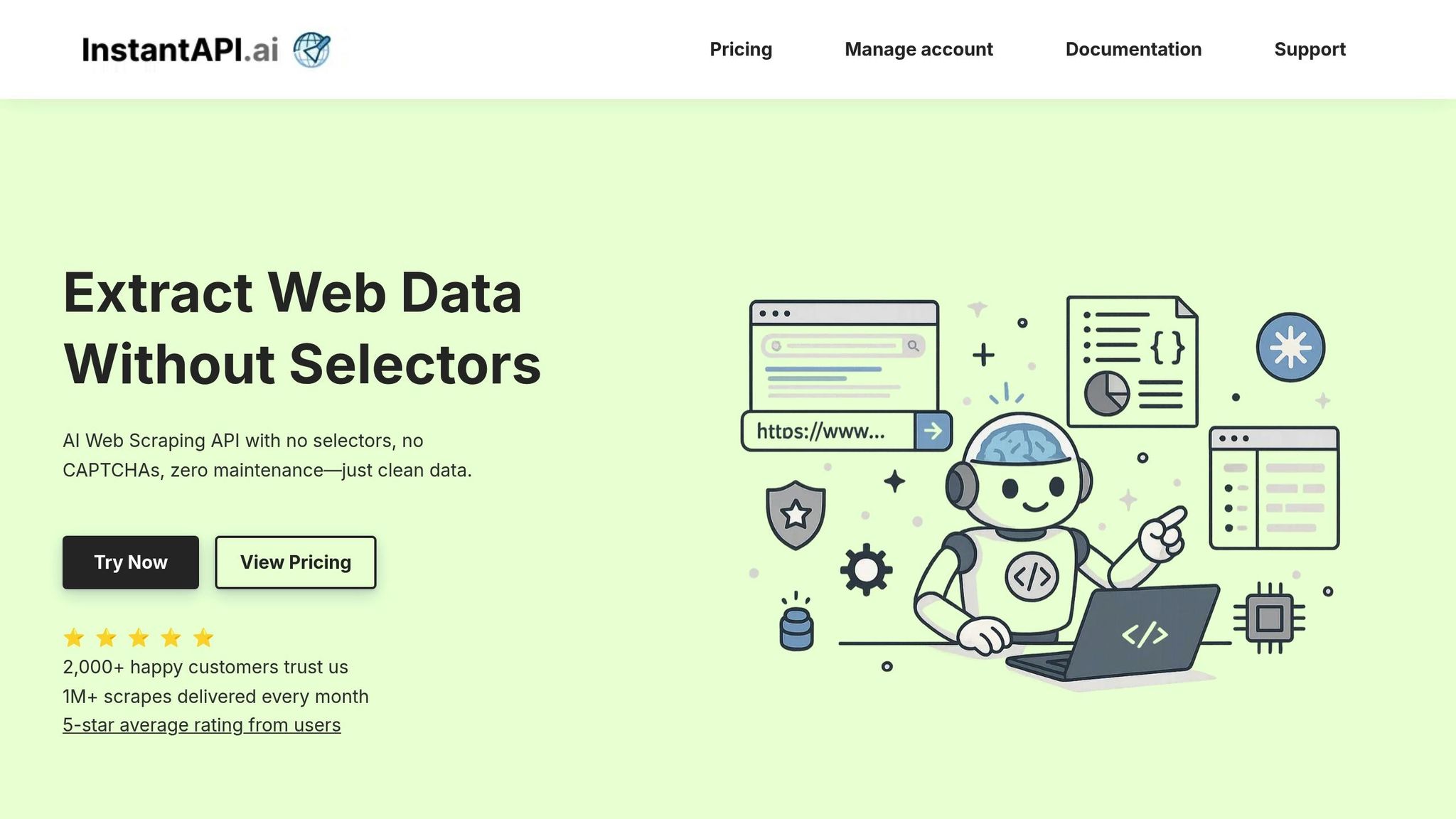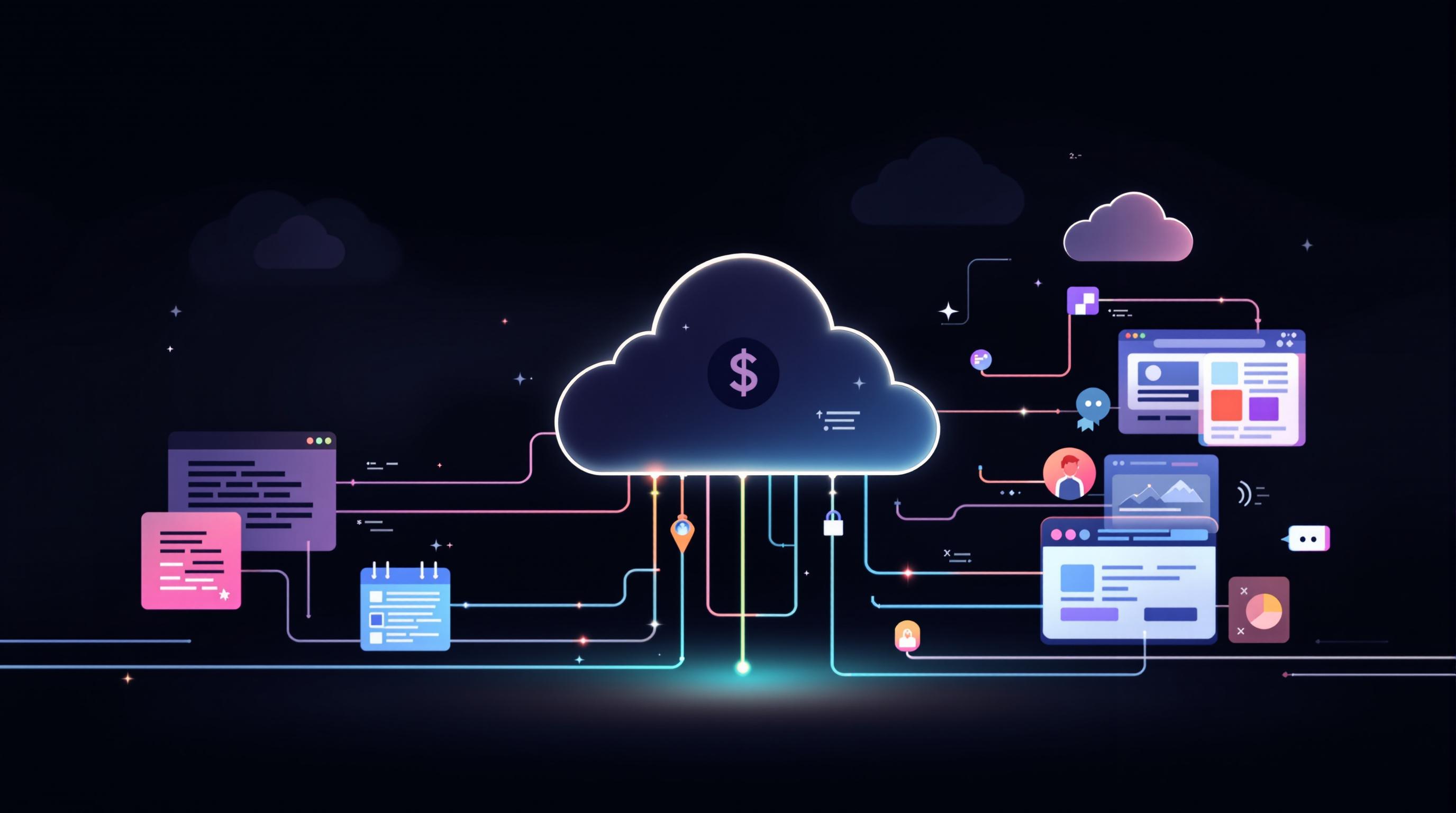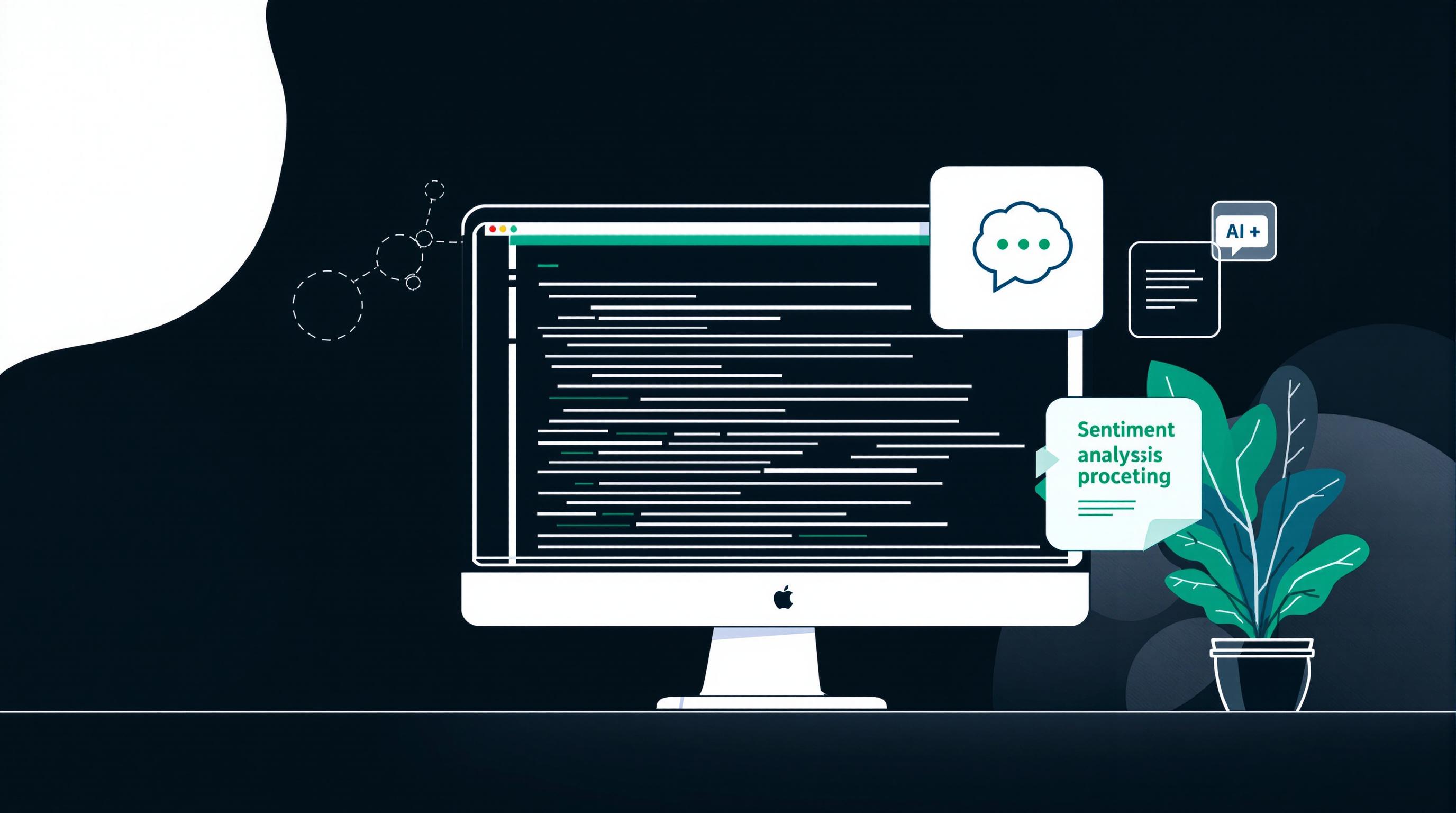Web scraping enables NGOs to automatically gather real-time data from websites, helping them make informed decisions and respond effectively to social issues. By automating data collection, NGOs can track trends like rent prices, job postings, public sentiment, and even health crises like COVID-19. This approach saves time, reduces manual effort, and provides actionable insights.
However, challenges like website updates, anti-scraping defenses, and scalability issues can complicate the process. Tools like InstantAPI.ai simplify these tasks by automating proxy management, CAPTCHA handling, and JavaScript rendering while offering a pay-as-you-go pricing model ideal for NGOs with fluctuating needs.
Key takeaways:
- Why NGOs use web scraping: Access up-to-date data on social issues, policy changes, and public sentiment.
- Challenges: Website updates, access barriers, and high costs.
- Solutions: Tools like InstantAPI.ai streamline the process with minimal maintenance and flexible pricing.
Web scraping is a practical tool for NGOs to gather reliable data, but maintaining ethical practices, like respecting website policies and ensuring data accuracy, is crucial for long-term success.
Learn Web Scraping with Python: A Beginner's Guide
Common Web Scraping Problems for NGOs
Web scraping can be a game-changer for NGOs, offering access to valuable data for research, advocacy, and decision-making. But implementing and maintaining these systems is no walk in the park. Technical challenges can quickly drain resources and disrupt data collection efforts. Let’s dive into some of the most pressing issues, starting with the infamous problem of selector drift.
Selector Drift and Maintenance Issues
Selector drift is a constant headache. It happens when websites update their structure, breaking the CSS selectors or XPath expressions your scraping scripts rely on. Even a small tweak to a webpage can throw everything off, leaving you with incomplete data or outright system failures.
This means NGOs often face a heavy maintenance burden. For organizations with limited technical staff, fixing these issues can take hours - or even days - of debugging and rewriting code. Now imagine dealing with multiple websites at once. The time and effort required can quickly spiral out of control.
Dynamic websites that rely on JavaScript or AJAX for loading content make things even more complicated. They often require advanced tools like Selenium or Puppeteer to handle the extra layers, adding to the technical expertise and infrastructure needed.
Access Barriers and Website Blocks
Modern websites don’t make it easy for scrapers. They’re armed with defenses like CAPTCHAs, IP bans, and geo-restrictions that can stop your data collection in its tracks.
To get around these barriers, NGOs often turn to tactics like:
- Using rotating proxies and user agents to mask their activity.
- Adding randomized delays and managing cookies to mimic human browsing.
- Investing in residential proxies, which are pricier but more effective at mimicking real user behavior.
Some even rely on CAPTCHA-solving services, though these can be hit-or-miss and add to the overall cost. The key to staying ahead is constant vigilance - adjusting strategies as websites evolve their defenses.
Scalability and Cost Problems
Scalability is another major issue, especially for NGOs with unpredictable data needs. Unlike businesses with steady data collection schedules, NGOs often face "bursty" workloads. For example, during a campaign or in response to a crisis, they might need to scrape large amounts of data quickly, only to scale back significantly afterward.
This irregular demand doesn’t fit well with fixed-tier SaaS solutions, which are often designed for enterprises with consistent usage patterns. Monthly minimums or seat licenses can make these tools cost-inefficient for NGOs.
Handling large-scale scraping also demands serious infrastructure. Distributed computing frameworks or cloud services might be necessary to process massive data volumes efficiently. But these come with their own challenges - requiring technical expertise to set up and maintain, not to mention the added costs. And if AI-powered tools are part of the mix, every query adds to the bill, making the operation even more expensive.
On top of all this, the need for constant monitoring, updates, and fixes can lead to mounting technical debt, pulling resources away from the NGO's primary mission.
Web Scraping Tools and Solutions
Non-Governmental Organizations (NGOs) have a variety of web scraping tools at their disposal, ranging from Python-based libraries to advanced API-based solutions. Each option tackles challenges like dynamic content and fluctuating workloads in its own way.
Python Libraries and Frameworks
BeautifulSoup is a go-to choice for beginners in web scraping. It’s great for basic HTML parsing but struggles with JavaScript-generated content. Plus, it requires manual handling of proxies and error management, which can be a hassle.
Scrapy, on the other hand, is built for larger-scale projects. It offers features like data processing, automatic retries, and proxy support. However, it demands a higher level of technical expertise, and handling JavaScript-heavy sites often requires additional tools, making its setup more complex for optimal results.
For JavaScript-heavy websites, tools like Selenium and Puppeteer are more effective. They excel at rendering JavaScript but come with a significant trade-off: high resource consumption and ongoing maintenance needs.
These challenges often push NGOs to look for simpler, less resource-intensive solutions.
API-Based Scraping Solutions
API-based solutions, like InstantAPI.ai, take a completely different approach. Instead of wrestling with CSS selectors or XPath expressions that break when a site updates, this tool allows users to input a public URL and describe the data they need in plain English. The API then delivers clean, structured JSON without requiring site-specific configurations.
What sets this approach apart is its automated handling of proxies, CAPTCHA, and JavaScript rendering. Even when a website changes its structure, the service adapts automatically, eliminating the need for emergency fixes or code updates.
The pricing is another big draw for NGOs. At $2 per 1,000 pages scraped with no minimum spend, the pay-as-you-go model is ideal for organizations dealing with unpredictable workloads. Whether scaling up during a campaign or responding to a crisis, NGOs can scrape data without worrying about fixed monthly costs.
For technical teams, InstantAPI.ai integrates seamlessly into existing workflows. It works with any stack, from Airflow and Spark to basic shell scripts, and offers endpoints for tasks like structured data extraction, pagination, link discovery, and even Google SERP data.
Tool Comparison Table
| Feature | Python Libraries | No-Code Scrapers | InstantAPI.ai |
|---|---|---|---|
| Setup Time | Days to weeks | Hours | Minutes |
| Maintenance | High (constant fixes) | Medium (GUI limits) | None (auto-adapts) |
| JavaScript Support | Requires add-ons | Limited | Built-in |
| Proxy/CAPTCHA Handling | Manual setup | Basic | Automatic |
| Cost Structure | Development + infra | Monthly subscriptions | Pay-per-use ($2/1,000 pages) |
| Scalability | Requires planning | Limited by tiers | Automatic |
| Technical Expertise | High | Medium | Low |
This comparison highlights why traditional methods often fall short for NGOs. Python libraries require significant technical resources, which can be difficult to sustain. No-code scrapers, while simpler, frequently struggle with advanced anti-bot measures or complex JavaScript. API-based solutions like InstantAPI.ai remove much of the technical burden, adapting automatically to changes and ensuring reliable data collection with minimal effort.
How to Use InstantAPI.ai for NGO Data Collection

Getting Started with InstantAPI.ai
Setting up with InstantAPI.ai is quick and straightforward. In just a few minutes, you can create an account and get your API key. The platform simplifies data scraping by letting you describe your data needs in plain English, handling all the technical complexities behind the scenes. This means no more manual extraction or dealing with constant maintenance when websites update.
Start by defining your data requirements using a JSON schema. Instead of wrestling with CSS selectors or XPath expressions that might break with website changes, you can create a mock JSON object that outlines exactly what you need.
For instance, if your NGO is focused on tracking government grant opportunities, your schema might look like this:
{
"grant_title": "string",
"funding_amount": "number",
"application_deadline": "date",
"eligible_organizations": "array",
"program_description": "string",
"contact_email": "string"
}
The API will return clean, structured data that matches your schema. This approach saves you from figuring out how to extract the data, allowing you to focus on defining what’s important.
Once your schema is ready, you can set up automated workflows using various API endpoints to make data collection smoother and more efficient.
Setting Up Automated Data Collection
To extract structured data from any webpage, use the /scrape endpoint. This is perfect for pulling information from government websites, legislative databases, or regulatory portals. You can easily automate the extraction of policy documents, public records, and other essential data without needing to configure the API for each site.
For tracking social issues, the /links endpoint is your go-to. With plain-English descriptions like “news articles about housing policy” or “reports on environmental regulations,” the API discovers relevant content across multiple websites. This saves you the effort of manually searching and cataloging pages.
When monitoring public sentiment, rely on the /search endpoint. It retrieves Google search results, complete with location-aware domains and anti-bot measures. This makes it easy to track shifts in public opinion by analyzing search trends, news coverage, and discussions on social media.
To handle pagination, the /next endpoint is a game-changer. It automates the process of navigating through pages, allowing you to systematically collect complete datasets from government databases or archives without manually clicking through hundreds of pages.
"It's incredibly user-friendly yet versatile, and the developer is exceptionally responsive and helpful! We now rely heavily on InstantAPI.ai's AI Web Scraping API in our workflow and couldn't be happier. Highly recommend!" - lamppostvic
Once you’ve gathered the data, it’s time to connect it to your NGO’s systems for analysis and action.
Connecting Data to NGO Systems
Integrating the data into your existing systems is as simple as making an HTTPS call. Whether your organization uses Airflow for pipelines, Spark for analytics, or even basic shell scripts, the API fits seamlessly into your workflow.
The platform provides sample code in Python and JavaScript to help you get started. For example, a Python integration might involve initializing the WebExtractClient with your API key, specifying the URLs to scrape, and defining your data fields in JSON format. The client.scrape function then retrieves organized data that you can immediately use in analytics tools or dashboards.
For NGOs using business intelligence platforms like Tableau or Power BI, the structured JSON output integrates directly, requiring no additional formatting. Similarly, database integration is straightforward since the API consistently delivers clean JSON, making it easy to automate workflows that populate CRM systems, grant tracking databases, or impact measurement tools.
"After trying several other solutions, we were won over by the simplicity of InstantAPI.ai's AI Web Scraping API. It's fast, straightforward, and lets us focus on what matters most - our core features." - Juan, Scalista GmbH
To make things even easier, the platform offers live Discord support to assist with integration or optimization questions. This ensures your technical team has access to real-time help whenever needed.
For NGOs focused on funding opportunities, the system can automatically populate spreadsheets or databases with vital details like grant deadlines and eligibility criteria. Policy monitoring workflows can send alerts to staff when new regulations or legislative updates are relevant to your mission. And when it comes to impact measurement, automated data collection from multiple sources allows you to feed real-time insights into your reporting systems, making decision-making faster and more informed.
sbb-itb-f2fbbd7
Best Practices and Ethics for NGO Web Scraping
Ethical data practices are essential for NGOs to ensure their web scraping efforts remain effective and responsible.
Following Website Policies
Respecting website policies is a cornerstone of ethical web scraping. Most websites include a robots.txt file, which specifies which parts of the site can be accessed by automated tools. Think of it as the site's "do not disturb" sign. Ignoring these guidelines can lead to legal troubles and harm your organization's reputation.
To check the robots.txt file, simply add /robots.txt to the website's domain. If certain areas are marked off-limits, respect those boundaries. On the other hand, many government websites and public databases encourage responsible data collection for research and advocacy, making it vital to follow their specific rules.
Also, review the site's terms of service and privacy policies. Some platforms may ask you to identify your scraper by including a user-agent string with your organization's name and contact information. This transparency fosters trust and shows you're operating responsibly.
Rate limiting is another critical practice. Adding a 1–3-second delay between requests prevents overloading a website's servers. This ensures your data collection doesn’t interfere with regular users' browsing experience.
"In web scraping, ethical and efficient practices are the pillars of progress. Handle the data environment with integrity, privacy understanding, and an unwavering commitment to excellence. Web scraping best practices not only drive innovation but also shape a sustainable and responsible digital future." - Saurabh Bhardwaj, VP, Account Management, NextGen Invent
Beyond compliance with policies, ensuring the integrity of the data you collect is just as important.
Maintaining Data Quality
Accurate data is the backbone of any NGO's credibility and decision-making. To ensure reliability, validation mechanisms should be part of every scraping workflow, especially when dealing with dynamic websites.
Cross-referencing is a powerful tool. For instance, if you're tracking policy changes, verify the data against multiple sources like official government databases, press releases, and legislative records. Doing so helps catch discrepancies that could indicate errors.
Error handling is equally vital. Scrapers should be equipped to deal with issues like HTTP timeouts, connection failures, or temporary outages. Logging errors and retrying failed requests after a delay ensures you don't miss critical information due to technical hiccups.
Dynamic content presents unique challenges, especially when monitoring real-time discussions or social media sentiment. Using headless browsers can help render JavaScript-heavy content that traditional scrapers might miss, though they require more resources.
Documentation is another key step. Keep detailed records of your data collection process, including the websites monitored, the data points extracted, and the validation methods used. This not only ensures transparency but also simplifies replication or stakeholder review.
As websites are constantly updated, staying adaptable is crucial to maintaining data quality.
Handling Website Changes
Websites often change their structure, and your scraping strategies need to evolve accordingly. Use stable, semantic selectors instead of fragile CSS selectors that can break when page layouts are updated.
Set up automated health checks to monitor your scrapers. These systems can detect when your scrapers return empty or malformed data, alerting you to potential issues before they disrupt your operations.
Have backup plans for critical data sources. For example, if your primary source for tracking legislative updates becomes unavailable due to changes, identify alternative official channels where similar data might be accessible.
To avoid triggering blocks, combine proxy rotation with rate limiting rather than relying on aggressive scraping tactics. The focus should always be on maintaining sustainable, long-term access to information.
Finally, schedule regular reviews of your scraping strategies. Check for updates to robots.txt files, terms of service, and structural changes on target websites. Monthly assessments can help ensure your workflows remain accurate and compliant with evolving policies.
Conclusion: Web Scraping as a Tool for NGO Success
Web scraping has changed how NGOs gather and use data, offering access to real-time information that enables quicker, more precise responses to community needs. Instead of relying on outdated reports or limited datasets, NGOs can now act immediately using current data. For instance, during the COVID-19 pandemic, web scraping played a crucial role in tracking the virus’s spread by analyzing online discussions and news reports. This allowed health authorities to allocate resources effectively and take timely action. The shift to real-time data collection not only simplifies the process but also opens doors to more impactful strategies.
Automated scraping does more than save time - it empowers NGOs to act faster and make better decisions. With immediate access to real-world data, organizations can identify service gaps, monitor trends, and adjust strategies on the fly. This ability to react quickly can significantly enhance how NGOs address emerging challenges and evaluate their efforts.
Scalability is another major advantage. Traditional methods often struggle to handle large volumes of data or frequent updates, but automated scraping enables NGOs to track multiple sources at once, across different regions and languages. This levels the playing field, allowing smaller organizations to access the same wealth of information as larger ones, boosting their analytical capabilities.
However, success with web scraping isn’t just about technical expertise - it also requires a strong commitment to ethical practices. Overcoming challenges like selector drift and access restrictions is important, but doing so responsibly is key. NGOs that set clear goals, create stable technical setups, and navigate anti-scraping measures while respecting legal and privacy standards can maximize the benefits of this tool.
For NGOs, the ability to turn online data into actionable insights is crucial. Web scraping provides the means to achieve this, enabling better decision-making, more effective service delivery, and lasting community impact - all while maintaining ethical and technical integrity.
FAQs
How can NGOs use web scraping ethically and responsibly?
NGOs can approach web scraping responsibly by adhering to ethical practices, such as respecting robots.txt files and following privacy laws and website terms of service. These steps help ensure data collection is lawful and avoids potential legal issues.
To safeguard trust and maintain integrity, NGOs should steer clear of scraping sensitive or personal data without clear consent. They should also use proper user agents and implement rate limits to avoid overwhelming websites. By keeping their processes transparent and working closely with stakeholders, NGOs can show accountability and uphold ethical standards in their data collection efforts.
How can NGOs tackle challenges like changing website structures and access restrictions when using web scraping?
NGOs can tackle challenges such as shifting website structures by using dynamic selectors like CSS or XPath. These selectors are designed to adjust to small changes on web pages, minimizing disruptions. Additionally, keeping a close eye on scraping pipelines through regular monitoring and logging helps identify and resolve issues promptly when selectors stop working.
To navigate access restrictions, NGOs can rely on techniques such as IP rotation, user-agent spoofing, and CAPTCHA-solving tools. These methods simulate human browsing behavior, making it harder for websites to detect scraping activities. By implementing these strategies, NGOs can maintain consistent and effective data collection, even as websites enhance their defenses.
Why is a pay-as-you-go model ideal for NGOs with varying data collection needs?
Why a Pay-As-You-Go Model Works for NGOs
A pay-as-you-go model is an excellent choice for NGOs dealing with unpredictable data collection needs. Instead of locking into fixed plans with set monthly fees, NGOs only pay for the resources they actually use. This means they can avoid overspending during slower periods and won't be restricted by resource limits during busier times.
For organizations facing fluctuating workloads, this approach minimizes waste and allows them to direct more of their budget toward their core mission. Plus, it makes scaling up simple - handling sudden spikes in data collection becomes much easier without the burden of extra overhead or long-term commitments.


